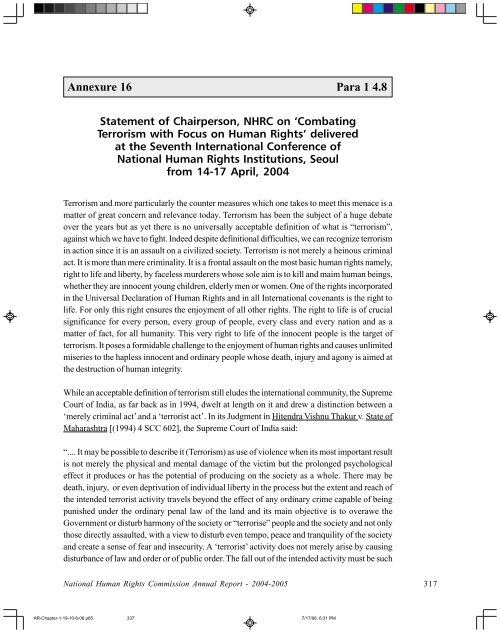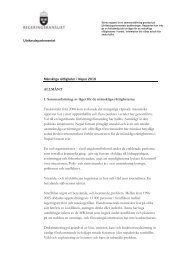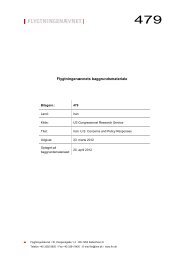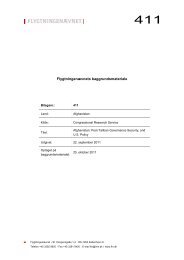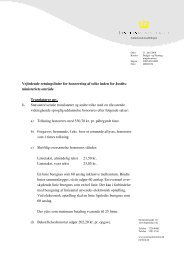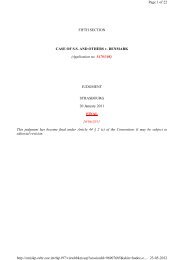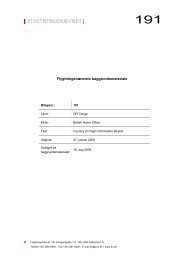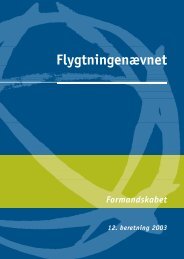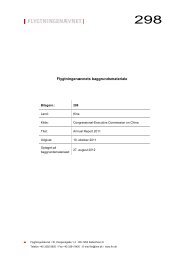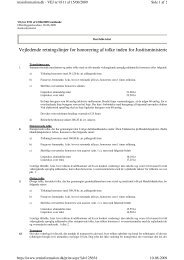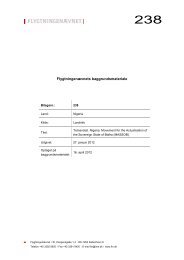Annual Report - National Human Rights Commission
Annual Report - National Human Rights Commission
Annual Report - National Human Rights Commission
Create successful ePaper yourself
Turn your PDF publications into a flip-book with our unique Google optimized e-Paper software.
Annexure 16 Para 1 4.8<br />
Statement of Chairperson, NHRC on ‘Combating<br />
Terrorism with Focus on <strong>Human</strong> <strong>Rights</strong>’ delivered<br />
at the Seventh International Conference of<br />
<strong>National</strong> <strong>Human</strong> <strong>Rights</strong> Institutions, Seoul<br />
from 14-17 April, 2004<br />
Terrorism and more particularly the counter measures which one takes to meet this menace is a<br />
matter of great concern and relevance today. Terrorism has been the subject of a huge debate<br />
over the years but as yet there is no universally acceptable definition of what is “terrorism”,<br />
against which we have to fight. Indeed despite definitional difficulties, we can recognize terrorism<br />
in action since it is an assault on a civilized society. Terrorism is not merely a heinous criminal<br />
act. It is more than mere criminality. It is a frontal assault on the most basic human rights namely,<br />
right to life and liberty, by faceless murderers whose sole aim is to kill and maim human beings,<br />
whether they are innocent young children, elderly men or women. One of the rights incorporated<br />
in the Universal Declaration of <strong>Human</strong> <strong>Rights</strong> and in all International covenants is the right to<br />
life. For only this right ensures the enjoyment of all other rights. The right to life is of crucial<br />
significance for every person, every group of people, every class and every nation and as a<br />
matter of fact, for all humanity. This very right to life of the innocent people is the target of<br />
terrorism. It poses a formidable challenge to the enjoyment of human rights and causes unlimited<br />
miseries to the hapless innocent and ordinary people whose death, injury and agony is aimed at<br />
the destruction of human integrity.<br />
While an acceptable definition of terrorism still eludes the international community, the Supreme<br />
Court of India, as far back as in 1994, dwelt at length on it and drew a distinction between a<br />
‘merely criminal act’ and a ‘terrorist act’. In its Judgment in Hitendra Vishnu Thakur v. State of<br />
Maharashtra [(1994) 4 SCC 602], the Supreme Court of India said:<br />
“.... It may be possible to describe it (Terrorism) as use of violence when its most important result<br />
is not merely the physical and mental damage of the victim but the prolonged psychological<br />
effect it produces or has the potential of producing on the society as a whole. There may be<br />
death, injury, or even deprivation of individual liberty in the process but the extent and reach of<br />
the intended terrorist activity travels beyond the effect of any ordinary crime capable of being<br />
punished under the ordinary penal law of the land and its main objective is to overawe the<br />
Government or disturb harmony of the society or “terrorise” people and the society and not only<br />
those directly assaulted, with a view to disturb even tempo, peace and tranquility of the society<br />
and create a sense of fear and insecurity. A ‘terrorist’ activity does not merely arise by causing<br />
disturbance of law and order or of public order. The fall out of the intended activity must be such<br />
<strong>National</strong> <strong>Human</strong> <strong>Rights</strong> <strong>Commission</strong> <strong>Annual</strong> <strong>Report</strong> - 2004-2005<br />
317<br />
AR-Chapter-1-19-10-6-06.p65<br />
337<br />
7/17/06, 6:31 PM


